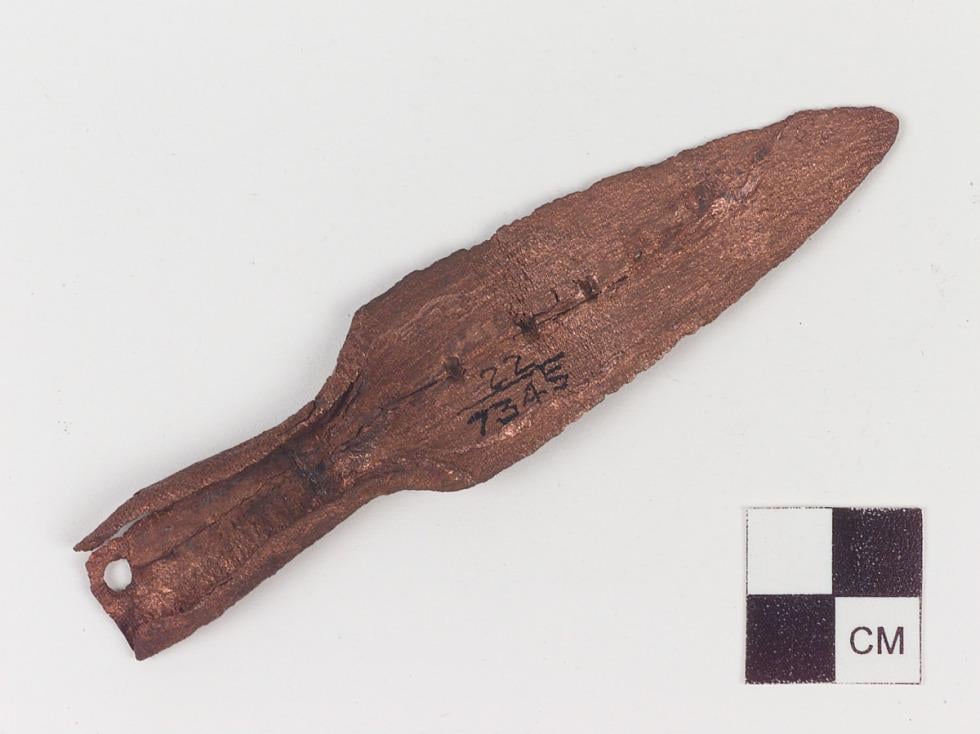
I-Bs are a common Old Copper Culture tool and weapon (there are almost 700 examples in my avocational archaeology GIS database; the number keeps increasing, and many hundreds, if not thousands, are still out there). They were likely used for butchering work based on their size, the rounded blade, use-wear, and Don Spohn's interviews with experienced butchers around Michigan who described their ideal knife. The main difference between an I-B and an I-J is the beveling. This example shows some probable use-wear and possible slight beveling above the blade's shoulders, making it a potential I-J. It was probably longer before sharpening and then getting lost, discarded, or deposited in a burial. Unfortunately (as with many Old Copper Culture artifacts), this one's find context is unknown.
————————
Sources:
The National Museum of the American Indian Collections – 22/7345
Don Spohn – Copper Artifact Journal, Vol. 4, No. 2, 2008, pp. 31-46
Monette Bebow-Reinhard – Updating the Wittry Typology (Phase XXV dated 3/30/25)
Warren Lee Wittry – A Preliminary Study of the Old Copper Complex, 1950, pp. 44, 49
by CopperViolette
